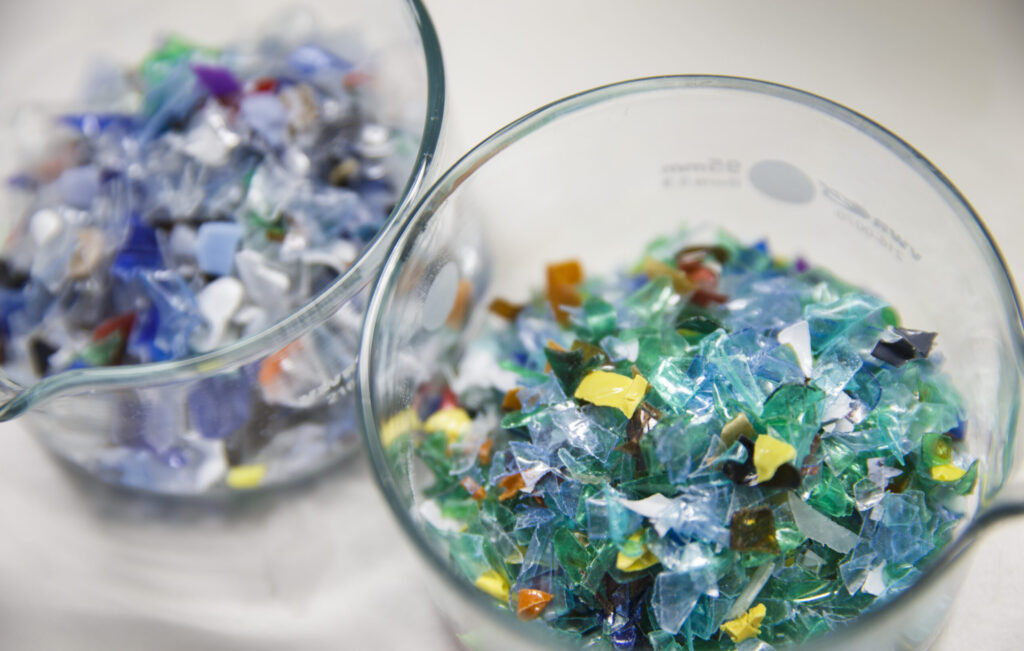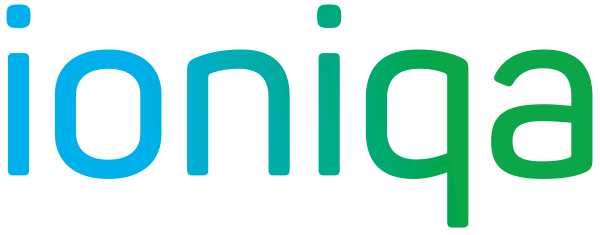
The European mountain of waste plastic is large. On the way to a circular economy in 2050, the EU wants to recycle much more plastic in the coming years. Plenty of opportunities, but start-ups run into numerous walls. “Getting in is difficult and expensive.”
‘It takes a long time, doesn’t it,’ Tonnis Hooghoudt is regularly told. His company Ioniqa has been working for ten years on the development of a new recycling technique for plastic. Despite the fact that the factory on the South Limburg business campus Chemelot has been running for four years and the company works together with a subsidiary of the American industrial conglomerate Koch, it is still far from where it hopes to be. Hooghoudt can only answer: ‘I think so too.’
At the former DSM site in Geleen, Ioniqa processes PET plastics from bottles and packaging and also plans to process polyester textiles in the future. The waste arrives in large bags, supplied by plastic makers and processors, such as the Thai PET producer Indorama.
Green, blue and red chips lie like a mosaic floor next to a silo, ready for processing. The plastic is placed in a chemical bath and, in a maze of metal pipes and meter-high silver shiny barrels, is heated for hours and thus reduced to the original building blocks. From polymers to monomers. The end product is a raw material for making plastic again, a white substance that resembles milk powder.
The prospects are promising: Europe has major recycling ambitions and wants a circular economy from 2050 in which there is no waste and raw materials are reused. From 2030, all plastic packaging must already contain a minimum amount of recycled material. And there is talk of additional taxes on new plastic from petroleum, virgin plastics in jargon.
The development resulted in Ioniqa, once a spin-off of Eindhoven University of Technology and the Dutch Polymer Institute, earning the predicate of National Icon in 2019. ‘An invention with great economic potential’, said the then State Secretary of Economic Affairs Mona Keijzer. But Ioniqa still has to realize that potential in 2023, just like many other companies in the sector.
Multiple paths to recycling
First a step back. Plastic recycling can roughly be divided into two methods: mechanical and chemical. In the mechanical variant, plastic is shredded and melted down. The applicability depends on the type of plastic and the quality. For example, PET can largely be processed mechanically and reused in soft drink bottles, because the deposit system makes it a reasonably clean waste stream. This is not allowed for other types of plastic.
Chemical recycling involves various techniques in which plastic is broken down into its original building blocks, for example by heat or solvents. Contamination disappears, allowing the end product to be used for more applications, including food packaging. But this method costs more energy than mechanical recycling and the capacity is still limited.
Rinke Altink is also researching a variant of chemical recycling for TNO on the Chemelot Campus, a stone’s throw from Ioniqa. He expects that different recycling techniques will continue to exist side by side. ‘There is no single solution that works for all plastic waste, there is no silver bullet .’
According to Altink, it is important that different variants are investigated. ‘We have made plastic from fossil raw materials for a hundred years,’ he says. ‘Now we want to start reusing waste. We don’t know exactly what the best way to do this is yet. But there is no more time to test the new methods one by one. It takes ten to twenty years to set up a large logistics process. Time is running out.’
Growth is necessary
According to research agency ICIS, which is based on data from final investment decisions, the total chemical recycling capacity in Europe is expected to grow to just over 600,000 tonnes per year over the next five years. The pipeline of projects exceeds 2.5 million tons.
That sounds big, but it’s a pittance compared to production. According to industry association PlasticsEurope, 57.2 million tons of plastic were produced in Europe two years ago, one tenth of which was recycled material.
That increase in recycling is therefore crucial, thinks Geert Warringa, a researcher at research agency CE Delft. He doubts whether the EU target for plastic food packaging, for example, can be achieved without these new companies. ‘If chemical recycling is not scaled up, you will not make it. At the moment there is hardly any capacity. Then plastics can still be recycled but not used in food packaging.’
According to Chris Bruijnes, director of the Knowledge Institute for Sustainable Packaging, the packaging market is eagerly looking for opportunities to make high volumes of new, clean plastic from existing material. Without chemical recycling it becomes ‘a puzzle’, he says. ‘Currently, recycled plastic usually doesn’t end up in food packaging, but is used in other products such as roadside posts, because the quality of the recyclate is still insufficient. Hopefully this will be possible with new technologies, provided the volumes are high enough.”
Plenty of walls
The Ioniqa factory in Geleen now processes up to 10,000 tons of plastic per year for customers such as Indorama and Unilever. But that still doesn’t make a profit. Hooghoudt has pinned his hopes on the sale of licenses for his technology to large plastic makers. ‘Processing on a large scale is not our expertise, plastic manufacturers can do it better.’
No licenses have been sold yet. It is a long-term process, says Hooghoudt. Existing plastic factories only sporadically come to a standstill for maintenance, which is the most logical time to introduce a technique or expand the factory. Shutting down a factory in the meantime costs money. ‘It is therefore often difficult and expensive to intervene with an innovation. ‘
Technology must be proven before established plastics companies want to integrate it, they say. This is also something that Wouter van Neerbos of recycling start-up Obbotec recognizes. His company processes waste plastics in Rotterdam using a solution technology. ‘The petrochemical industry is a conservative world, intervening as a recycling company is very difficult.’
Production costs skyrocketed
In addition: plastic is now a bulk product that is produced cheaply. According to research agency ICIS, high energy prices and labour shortages have pushed up production costs for recyclers in the past year. And that while the lower oil price made virgin plastic cheaper.
A lack of large volumes of collected plastic of the right quality is also an obstacle. ‘Especially if you look at waste streams from construction or agriculture, there is still a lot of plastic that can be extracted for recycling,’ says CE Delft expert Warringa.
And then there is the bureaucratic web of environmental regulations: waste processors must meet strict requirements to be able to supply recycled products outside the waste sector as new raw materials, unless they have an end-of-waste status. In practice, this leads to strange situations: for example, the Limburg N+P Group is allowed to deliver its recycled plastic pellets in Germany, but not yet in the Netherlands. According to TNO’s Altink, the government is very slow in determining exceptions to these regulations. If we want to move towards a circular economy, the rules must also move along, he argues.
Nevertheless, Tonnis Hooghoudt of Ioniqa remains optimistic. He mainly sees growth opportunities. ‘Every year, hundreds of millions of tons of new plastic enter the world market. I think there will be less demand for single-use plastics, but the demand for plastics in itself will not just disappear. We will continue to use that.’
This article is from Het Financieele Dagblad and it was translated into English. You can read the original article in dutch by pressing the button below.
